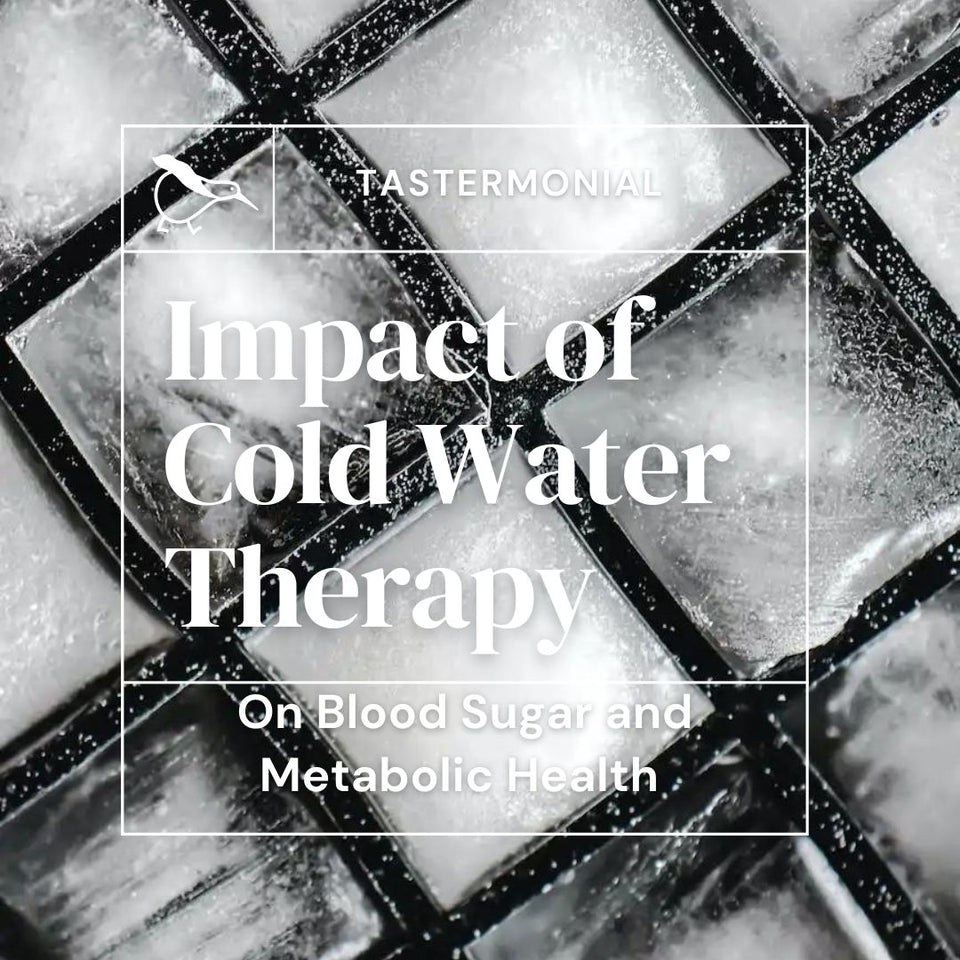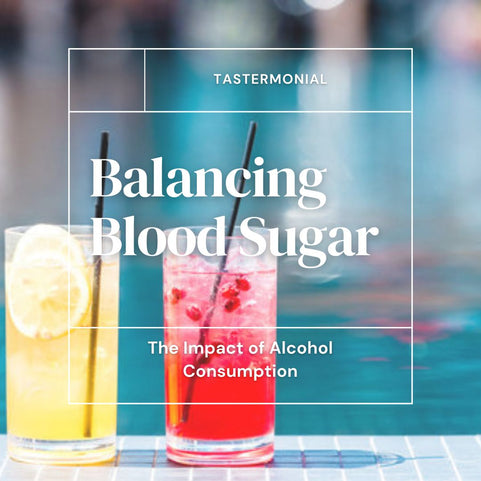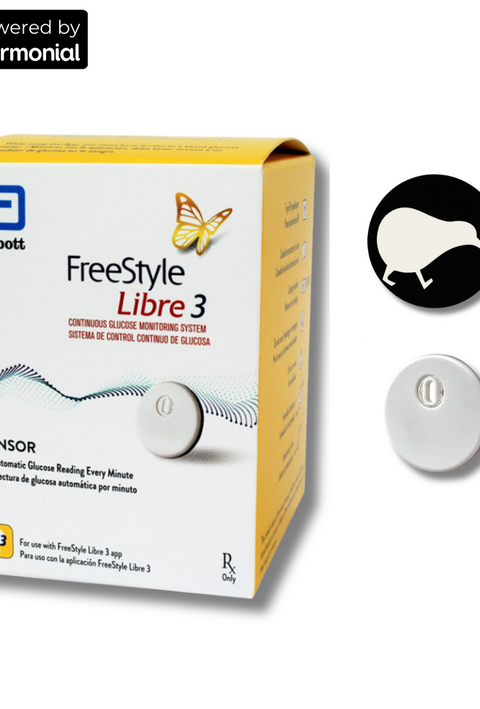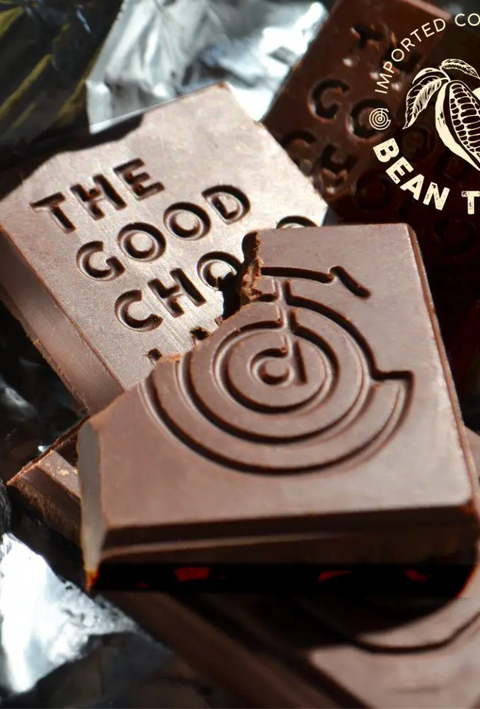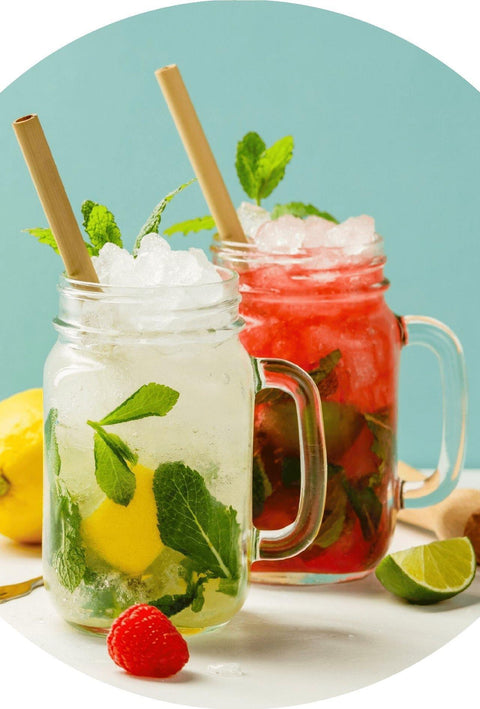
"What Is Cold Water Therapy and Does It Help My Blood Sugar?"
In recent years, the health and wellness community has taken a keen interest in cold water therapy. This practice involves immersing your body in cold water, taking cold showers, or using ice packs to induce physiological responses. While cold water therapy has been used for various purposes, in this article, we'll explore how it can impact metabolic health and blood sugar regulation.
Understanding Metabolic Health
Metabolic health refers to the overall state of your metabolism - the processes by which your body converts food into energy and manages its energy balance. It's important to maintain optimal metabolic health for various bodily functions, including hormone regulation, cellular repair, and energy production. Imbalances in metabolic health can lead to conditions like obesity, insulin resistance, type 2 diabetes, and cardiovascular diseases.
How Does Cold Water Therapy Work?
When exposed to cold temperatures, your body reacts in several ways to maintain its core temperature and protect vital organs. The primary physiological response to cold water exposure is vasoconstriction - blood vessels in the skin and extremities narrow, reducing blood flow to these areas. This helps preserve heat and maintain your core body temperature.
Additionally, cold exposure triggers the activation of brown adipose tissue (BAT), also known as brown fat. Unlike white fat, which stores energy, brown fat is specialized in generating heat. When activated, brown fat burns calories and glucose to produce heat, making it an attractive target for research on metabolic health and weight management.
Impact on Metabolic Health
Cold water therapy has shown promising effects on metabolic health, particularly in terms of energy expenditure and fat metabolism. Some studies suggest that regular cold exposure may increase resting metabolic rate, meaning that your body burns more calories even when at rest. This heightened metabolic rate may contribute to weight loss or weight maintenance efforts.
Moreover, the activation of brown fat through cold exposure has been linked to improved insulin sensitivity. Insulin sensitivity refers to how responsive your body's cells are to insulin - the hormone responsible for transporting glucose from the bloodstream into cells. Improved insulin sensitivity is beneficial for blood sugar regulation and reducing the risk of insulin resistance and type 2 diabetes.
Blood Sugar Regulation
One of the key benefits of cold water therapy is its potential impact on blood sugar levels. Some research suggests that cold exposure may enhance glucose uptake in skeletal muscles, increasing the rate at which glucose is cleared from the bloodstream. This effect could be beneficial for individuals with insulin resistance or those at risk of developing type 2 diabetes.
Furthermore, cold water therapy may help lower post-meal blood sugar spikes. Studies have shown that taking a cold shower after a meal may reduce the rapid increase in blood sugar levels that typically occurs after eating. By moderating these spikes, cold water therapy could potentially help manage blood sugar levels and improve long-term glucose control.
Types of Cold Water Therapy
Ice Bath
Taking an ice bath can be a great way to relieve muscle pain and increase blood flow, especially for athletes who use it for recovery. You can do this in a cold body of water, your bathtub, or a specialized ice bath vessel.
Fill the bathtub 60-80 percent with cold water
Fill the rest with ice
Submerge up to your neck
Stay in for the time allowed by your doctor (typically 3-10 minutes)
It's important to note that the research on ice baths is currently limited, so there isn't a standard guide yet. Some studies even suggest that post-workout ice baths may not show significant improvement in recovery compared to active recovery. But don't let that discourage you from trying it out and seeing if it works for you!
Hot and Cold Immersion
This is when you alternate between hot and cold water, which can involve swimming in cold water then taking a dip in a jacuzzi.
Another option is the contrast shower, where you alternate between hot and cold water during your shower. To try a contrast shower follow these steps:
Turn on your shower to a comfortably hot temperature for about 3-4 minutes
Turn water to cold for 1-2 minutes
Repeat this for 2-4 rounds
Cold Showers
Have you heard about the practice of taking cold showers? It's actually been around for thousands of years, and it's believed to have various health benefits such as boosting energy, supporting immune health, and even improving mood.
To try a cold shower in your routine, try for 1 minute under the cold water in your normal shower routine. Then slowly increase the time under cold water as you get more comfortable.
Safety Considerations
We're excited to see that cold water therapy has potential benefits for metabolic health and blood sugar regulation! However, it's important to be cautious when trying something new. Cold exposure can be stressful for the body, especially for individuals with certain medical conditions such as cardiovascular issues or Raynaud's disease. To make sure you're safe, always consult a healthcare professional before incorporating cold water therapy into your routine, especially if you have pre-existing health conditions.
Conclusion
Cold water therapy is a fascinating area of research with exciting potential for improved metabolic health and blood sugar regulation! The activation of brown adipose tissue and increased energy expenditure during cold exposure may contribute to these benefits. However, we need more research to fully understand the long-term effects. Until then, individuals interested in exploring this practice should do so cautiously and under the guidance of healthcare professionals. As our understanding of the human body continues to evolve, cold water therapy may prove to be a valuable addition to the arsenal of tools available for maintaining overall health and wellness.
References
https://pubmed.ncbi.nlm.nih.gov/26152773/
https://www.ncbi.nlm.nih.gov/pmc/articles/PMC2938508/
https://www.everydayhealth.com/wellness/possible-health-benefits-to-cold-water-therapy/
Disclaimer
This blog provides general information and discussions about health and related subjects. The information and other content provided in this blog, website or in any linked materials are not intended and should not be considered, or used as a substitute for, medical advice, diagnosis or treatment. This blog does not constitute the practice of any medical, nursing or other professional health care advice, diagnosis or treatment. We cannot diagnose conditions, provide second opinions or make specific treatment recommendations through this blog or website.
If you or any other person has a medical concern, you should consult with your health care provider or seek other professional medical treatment immediately.

